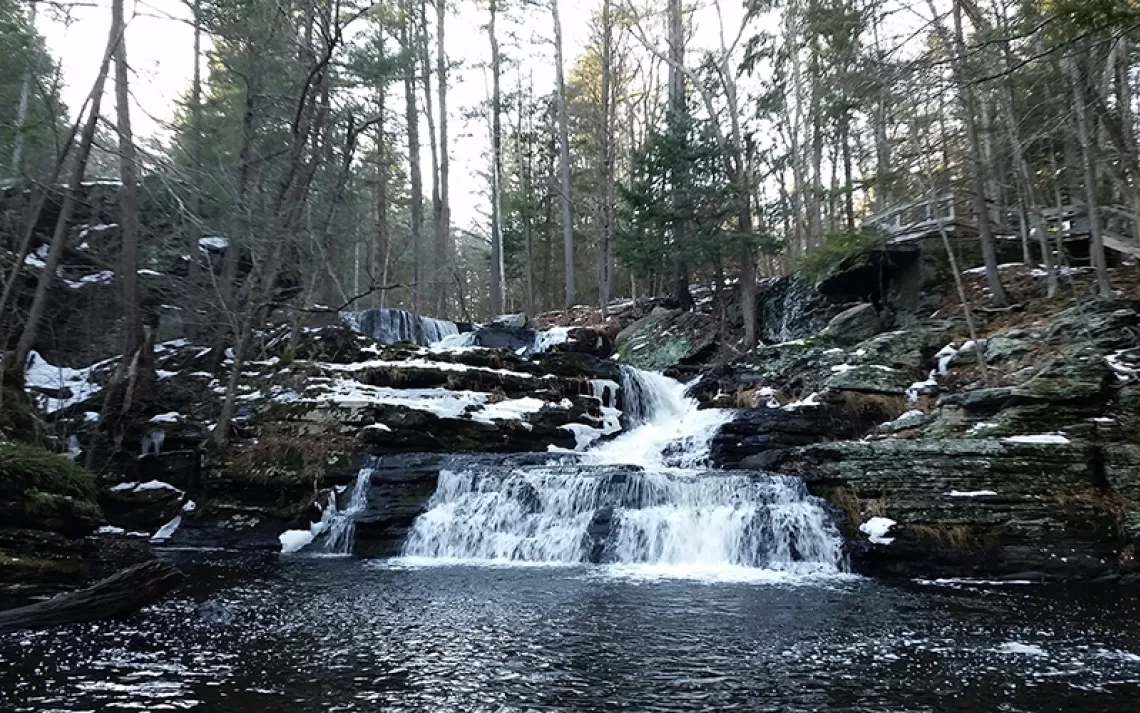Republicans in Florida Want to Ban Fracking
Republican legislators have co-sponsored a statewide fracking ban bill—no catches, no loopholes. And environmentalists are thrilled.

Photo by Metaphortography/iStock
When Republicans have their way, the environment suffers and the fossil fuel industry wins—at least that’s the conventional wisdom.
But Florida is proving to be something of an exception to that rule. Republican legislators there have co-sponsored a bill that would put in place a statewide ban on fracking. According to environmental organizations in Florida, the ban bill is legit—no catches, no loopholes. The proposal has Democratic co-sponsors in both the Florida House and Senate, making this a refreshing example of the two major political parties uniting on an environmental issue.
“I guess I would like to show that caring for the environment is not a partisan issue. It’s an issue for all Floridians,” says Senator Dana Young, a Republican who introduced the bill in the Florida Senate.
Fracking—the method of pumping water, sand, and chemicals underground to extract oil and gas—has been a target of environmentalists and public health advocates for years. In December, the Environmental Protection Agency released a report concluding that fracking has contaminated drinking water in some cases. The report also found that some chemicals used in fracking have been linked to cancer, immune system defects, and other human health hazards.
Those risks have galvanized some Republican lawmakers in Florida to protect their water from fracking chemicals. Republican Representative Mike Miller, who’s co-sponsoring the bill in the state’s lower chamber along with Democratic Minority Leader Janet Cruz, says any potential gains for the energy industry aren’t worth the risk of driving tourists away with tainted drinking water. In fact, he says, fracking could cost Florida big time.
“In order for people to come to Florida and enjoy the theme parks and the beaches, we have to have an abundant and clean water supply,” Miller says. “If we don’t have adequate clean drinking water, we will never survive as a state.”
Environmentalists are praising those Republicans who have bucked the trend of their party by supporting the fracking ban. Florida Conservation Voters and Floridians Against Fracking support the ban bill, as does the Sierra Club’s Florida Chapter. They applaud the bill for banning not only traditional fracking methods, but also acidization or acid treatment, an advanced recovery technique that an oil company used illegally near the Everglades in 2014.
Bipartisan support for the bill raises hopes that Republicans and Democrats can unite on other environmental issues, or perhaps on fracking bans in other states. A statewide fracking ban was recently proposed in Maryland, where Democrats dominate both legislative chambers.
In general, Republican lawmakers in Florida have had a rocky history with fracking. In 2016, a Republican majority—including Young—passed HB 191. The bill would have placed a temporary moratorium on fracking while its effects on Florida’s geology and water supply were studied. Environmentalists argued the bill would have prevented cities and counties from instituting their own fracking bans and that it allowed the exact list of chemicals used in fracking to be kept from the public in the name of trade secrets. Senator Young says she supported the bill because she believes the study would have concluded that fracking wasn’t safe, which would have led to an outright ban.
Senator Gary Farmer, a Democrat who co-introduced Young’s bill and proposed his own ban bill and constitutional amendment in December, welcomes Young’s and other Republicans’ support on the current fracking ban bill—and he isn’t particularly surprised by their support.
“An overwhelming number of people oppose fracking,” Farmer says. “So I think smart legislators see that and, particularly legislators who may have voted for fracking in the past, want to establish that they have evolved in their thinking.”
Indeed, fracking is such a unifying topic in Florida in part because Florida’s geology makes fracking there exceptionally risky. Virtually the entire state sources its drinking water from underground aquifers, which flow through porous limestone. If fracking chemicals seeped into the aquifer, the only way to clean them up would be to wait for them to drain out into the ocean; in the meantime, drinking water would be contaminated.
Florida voters seem to understand that their state is uniquely vulnerable to environmental threats. While Floridians have voted for Republican-dominated legislatures and governorships for the past several election cycles, they’ve also voted for the environment. In 2014, 75 percent of voters approved an amendment to restore and conserve Florida’s wetlands and forests. And last November, on the same day President Trump edged out a win in the state, Floridians rejected a proposal that would have opened the door to allow a surcharge on solar customers.
Whether the fracking ban bills survive the legislative process remains to be seen. The Senate and House bills are in committee and could get a vote as early as March 7, when the next session starts. If the bills pass the legislature, they would then have to be signed into law by Republican Governor Rick Scott, who has a stake in the oil and gas industry. Which means that this political battle in the Sunshine State isn’t over yet. Stay tuned.
 The Magazine of The Sierra Club
The Magazine of The Sierra Club



